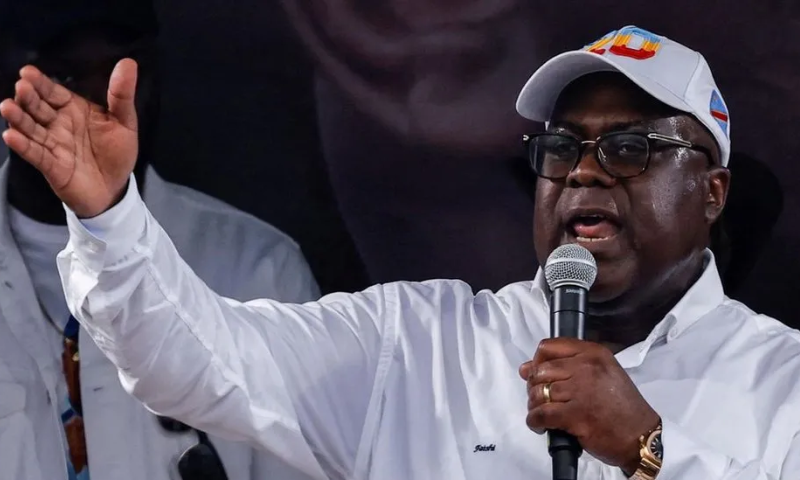KINSHASA: Provisional results announced on Sunday reveal that President Felix Tshisekedi has won a landslide victory, securing a second term in the Democratic Republic of Congo (DR Congo) election. Tshisekedi secured approximately 73% of the vote, with his closest rival, Moise Katumbi, garnering 18%, according to officials.
The election, held on December 20, was marked by widespread logistical challenges, leading to an extension of voting to a second day in some areas. Approximately two-thirds of polling stations experienced delayed openings, and 30% of voting machines malfunctioned on the first day, as reported by observer groups.
The opposition, alleging a deliberate plan to manipulate results in Tshisekedi’s favor, has decried the election as a “sham.” Several main challengers have called for protests following the announcement of results.
Security Measures in DR Congo for Elections
Security measures are in place, with the army deployed in various parts of the capital, Kinshasa, to prevent potential unrest. The opposition candidates accuse Tshisekedi’s victory of being the result of electoral fraud.
The head of the election commission, Denis Kadima, acknowledged irregularities but defended the results, stating they reflected the will of the Congolese people. Tshisekedi will be sworn in for a second term on January 20.
The election, held in the vast country, faced challenges, including logistical difficulties, with millions waiting for hours to cast their votes. The Constitutional Court has a 10-day window to hear any legal challenges before announcing the final results on January 10, 2024.
DR Congo, a nation about four times the size of France, grapples with infrastructural limitations and widespread poverty, with around two-thirds of its 100 million population living below the poverty line. The elections also covered parliamentary, provincial, and municipal representatives, with over 100,000 candidates participating.
Parts of the east did not hold elections due to ongoing conflict, with armed groups vying for control of the region rich in mineral wealth, including significant cobalt reserves essential for lithium batteries.
























